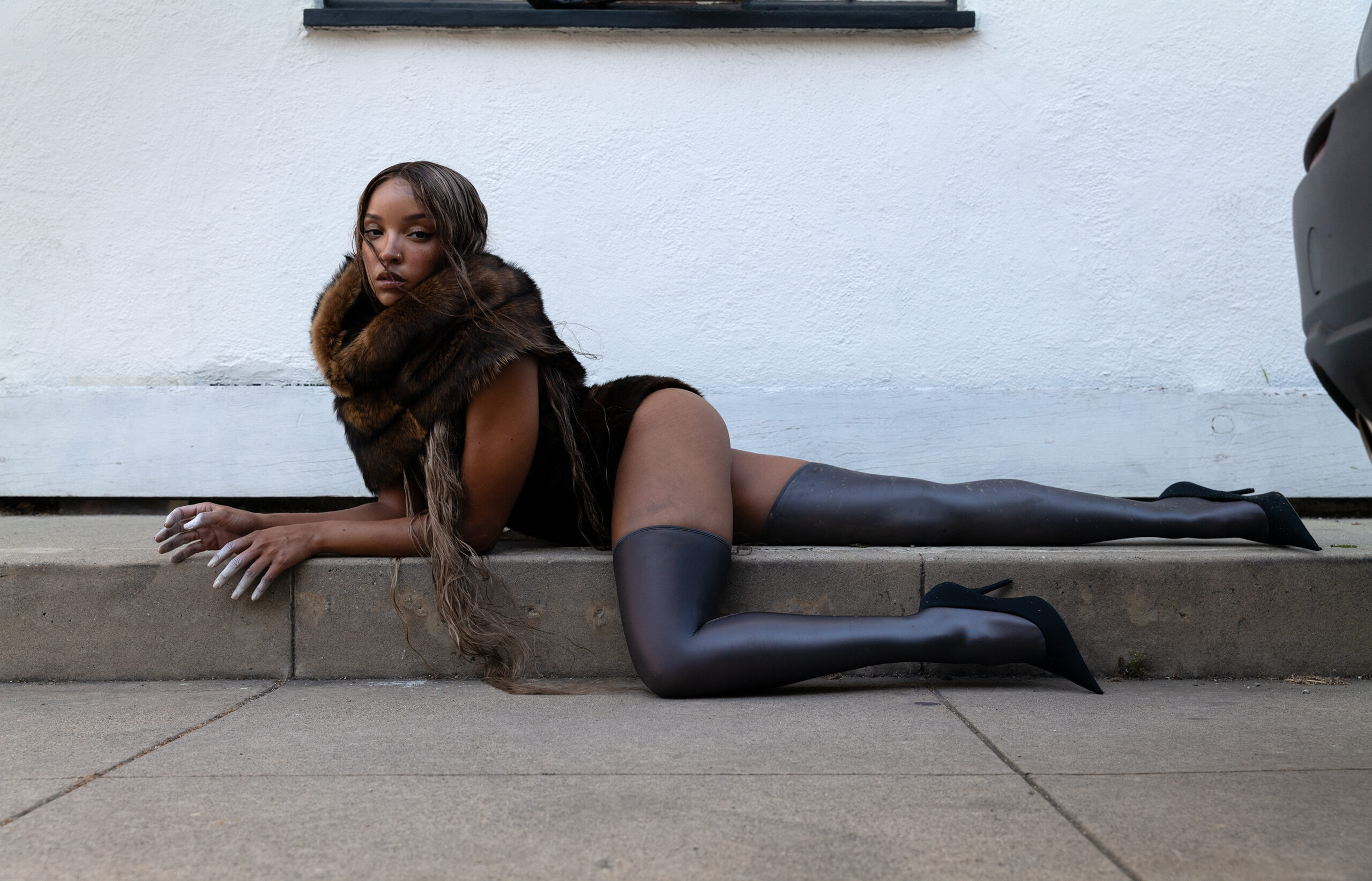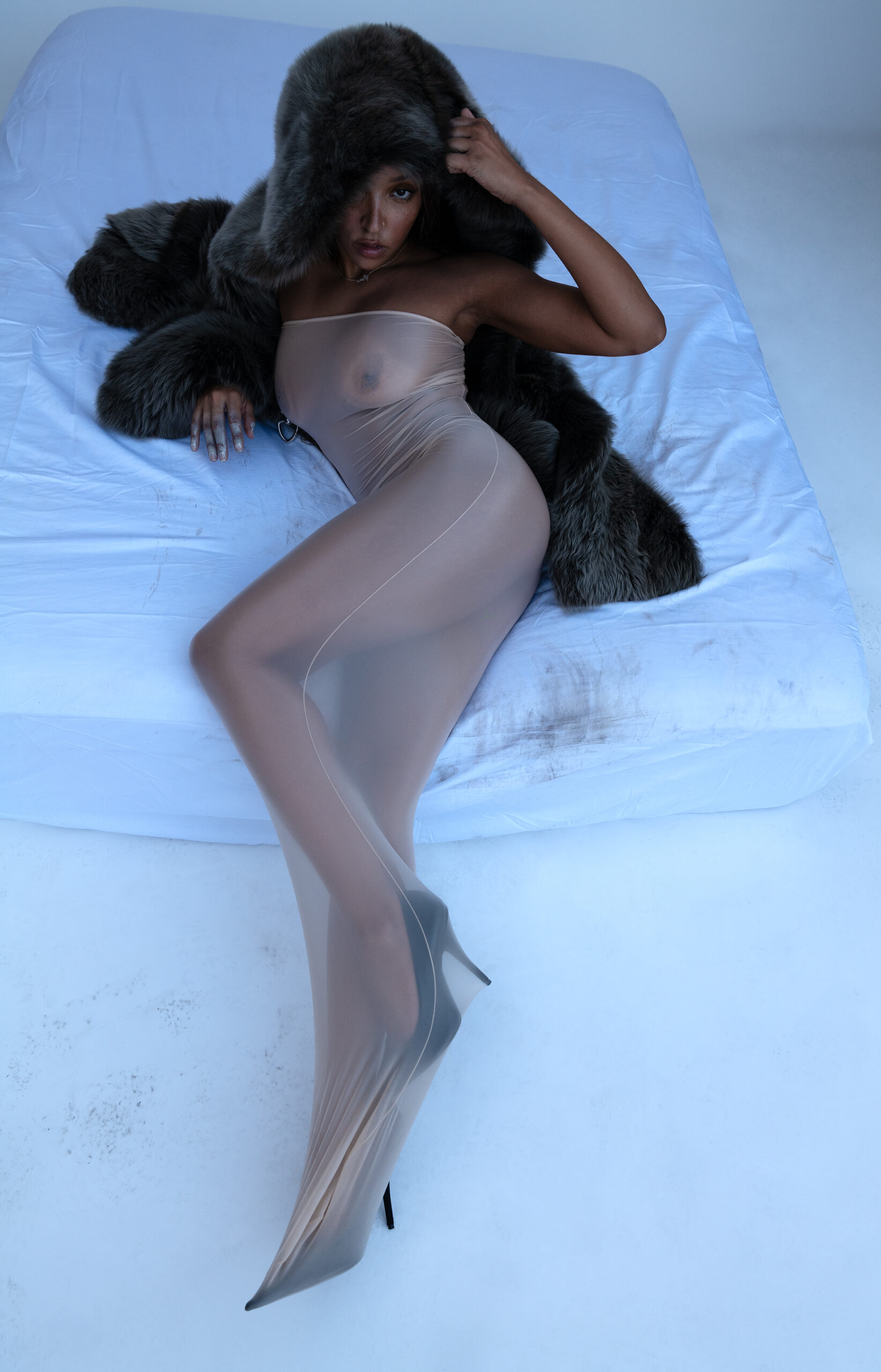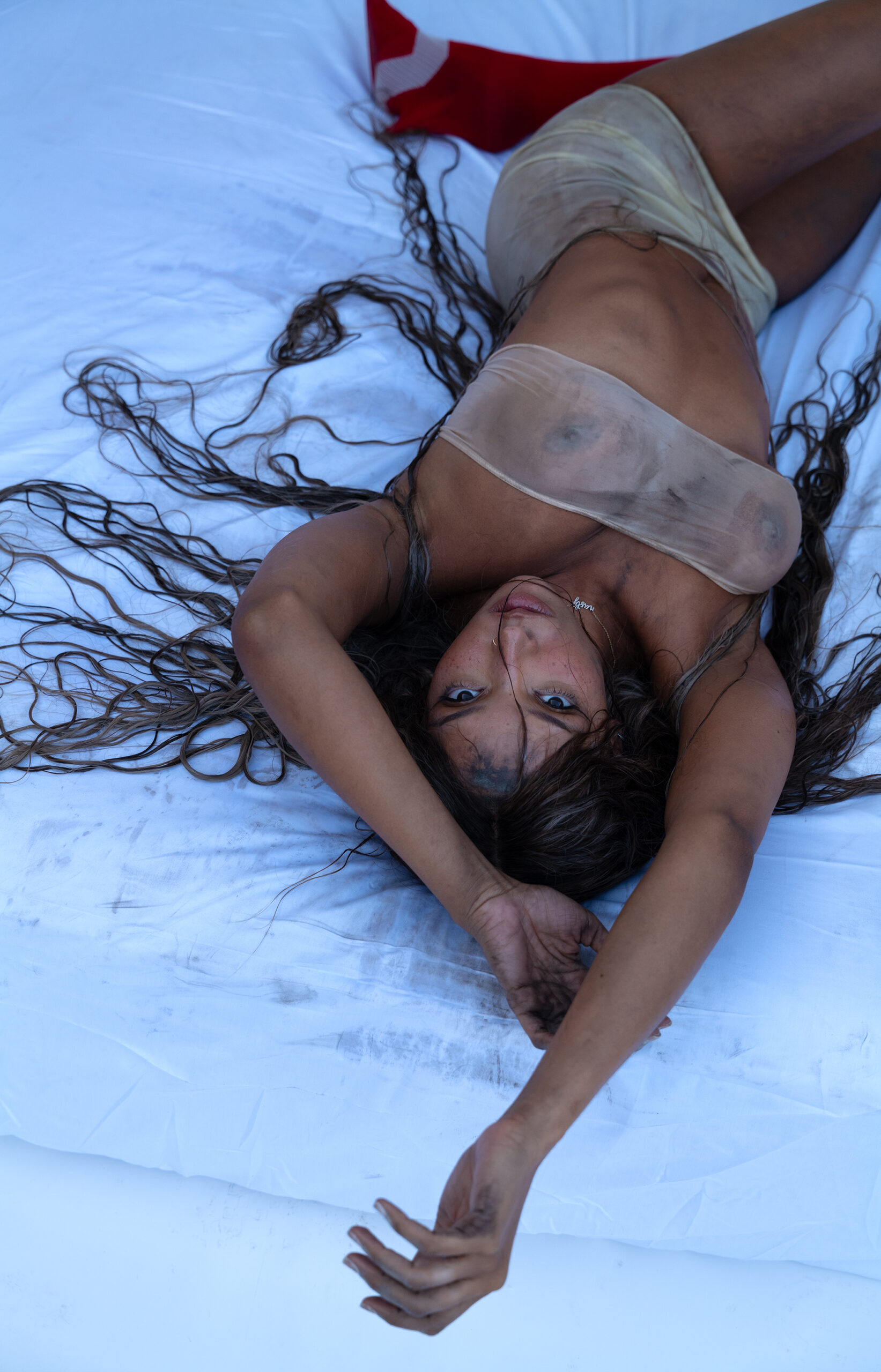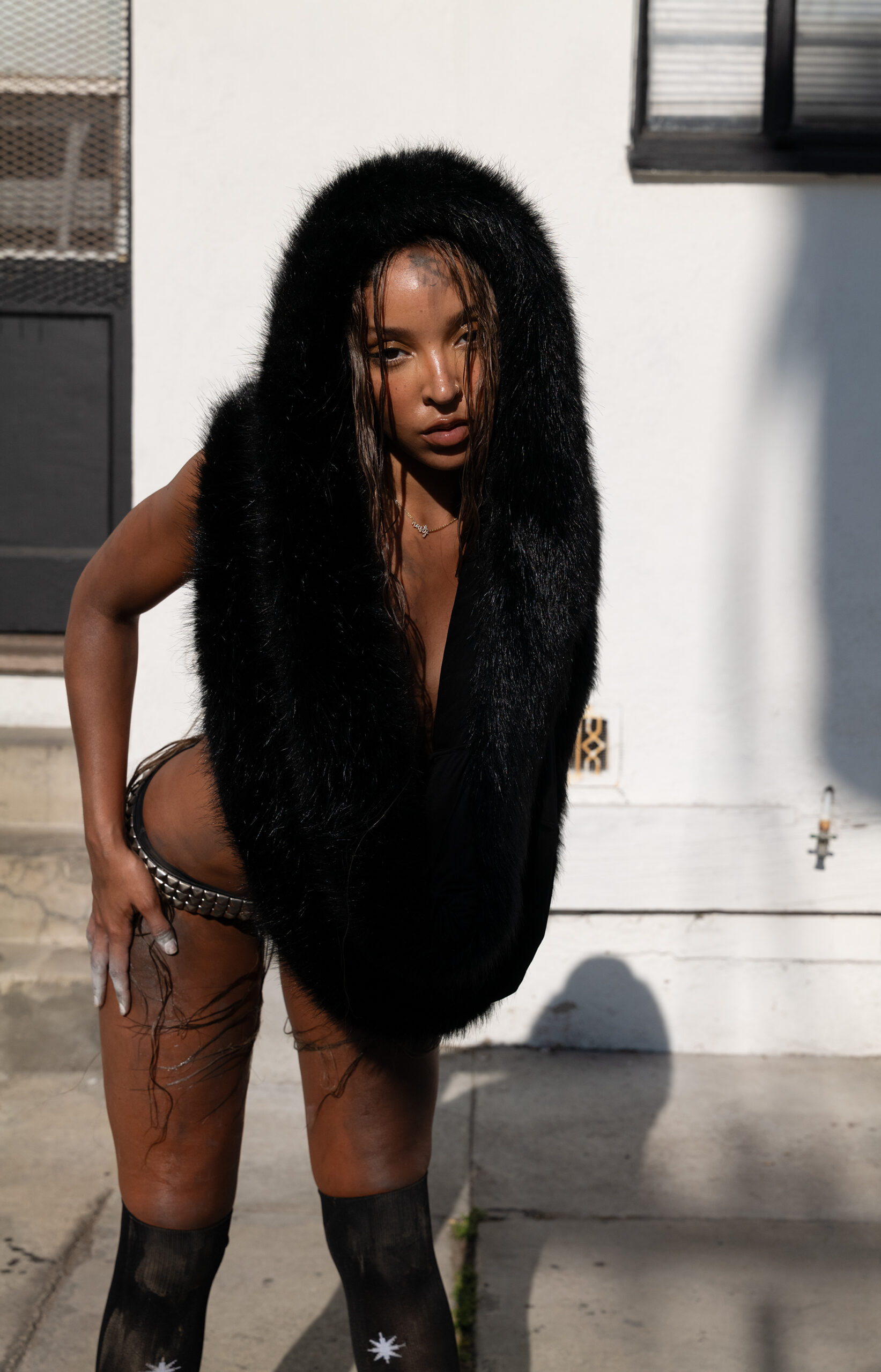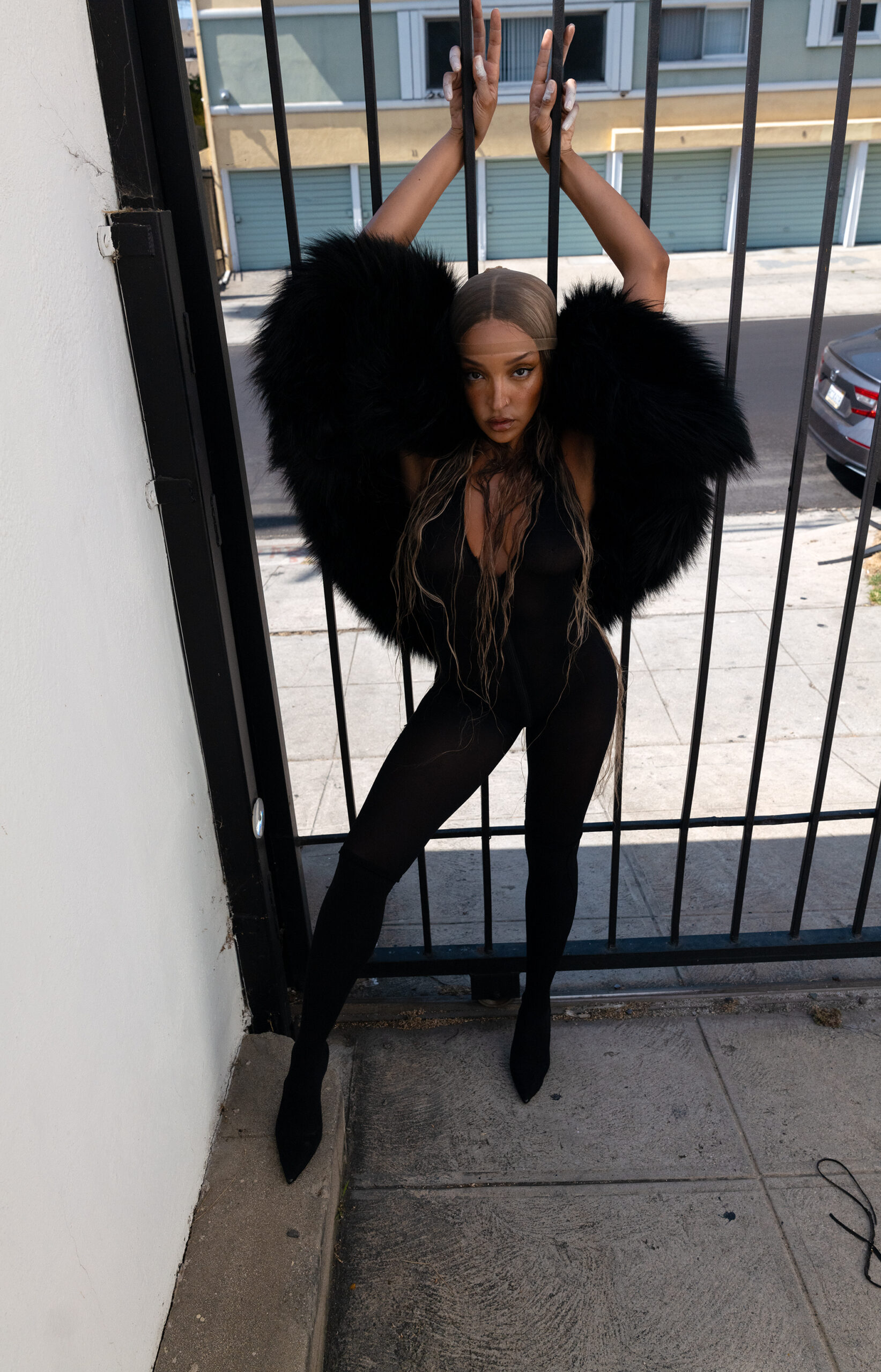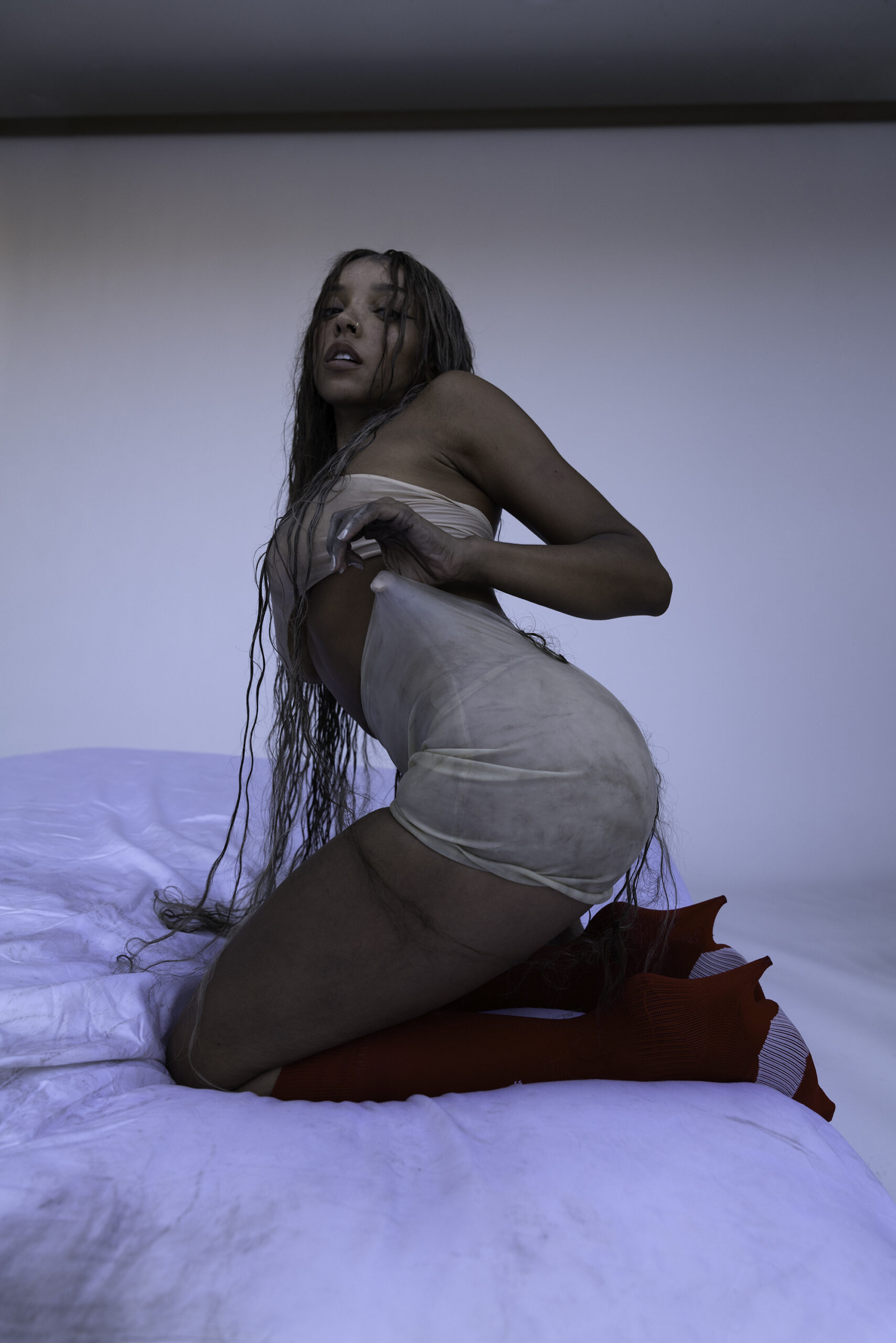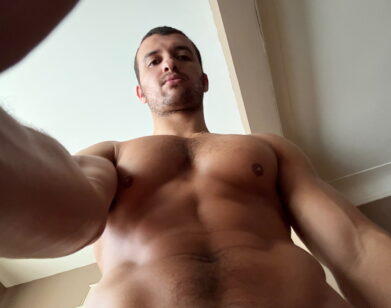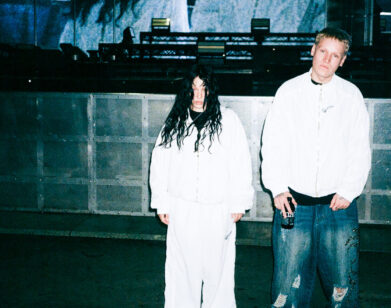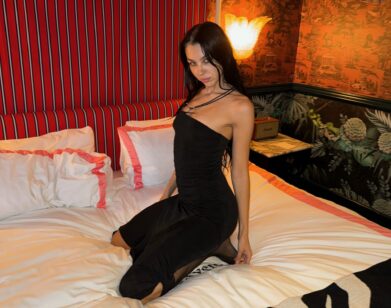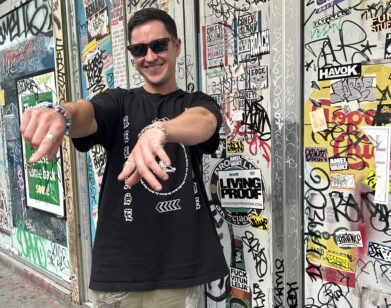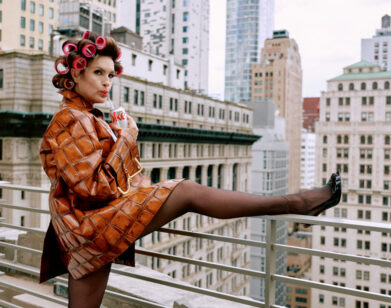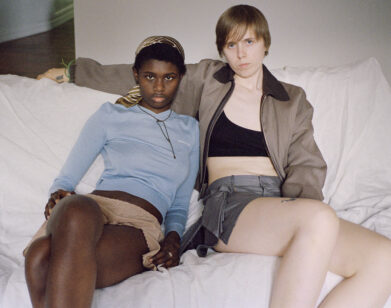FREAK
Tinashe and Kaytranada on Viral Moments, Industry Plants, and Pop Girl Rivalries
No one can match Tinashe’s freak. After going viral with “Nasty,” a sexy summer hit that’s put the industry veteran onto a new generation of fans, she’s gearing up for the release of her seventh studio album, Quantum Baby. After fighting for the spotlight for over ten years, is this finally the 31-year-old’s moment? As the newly independent singer tells her friend and collaborator Kaytranada, that is beside the point.
———
MONDAY 8:10 PM JULY 22, 2024 LA
KAYTRANADA: Mic check. Mic check. Mic check. Hello?
TINASHE: What’s up?
KAYTRANADA: Hey, girl. How are you?
TINASHE: I’m well. How are you?
KAYTRANADA: I’m good. I just got back to L.A.
TINASHE: Nice, I’m about to leave. I’m going to New York tomorrow, then I’m going to Paris for something real quick. It’s been a crazy summer so far.
KAYTRANADA: I love that for you. So I must start with the questions—
TINASHE: Thanks for doing this, by the way.
KAYTRANADA: Of course. So a lot of fans seem to be confused that you haven’t broken through as a mega pop artist until now. Why do you think that is?
TINASHE: I’m not sure why the zeitgeist has kept me in some type of niche category. But I’m in a great position. I have fans that love me, I’m able to tour, I’m able to make the art I want to make. So I’m pretty satisfied. As much as I want all the success and the accolades, I have such a great career, so I’m thankful. But I don’t know why. It could be the universe. It could be the way society’s set up. Being a Black woman in music is difficult. There’s been a lot of discrepancy over how to market me. In my early days, people were confused by my genre hopping and my lack of commitment to an urban direction.
KAYTRANADA: Did you feel pressure to cater to certain tastes?
TINASHE: I used to. Now I have the freedom to do whatever I want. But I did in my early days, like when I was signed to RCA after having just made my first mixtapes. I don’t think it was insidious, but over time I started making more and more compromises. They had these expectations of what kind of artist I was, and the type of music that I was making wasn’t aligning with their vision of either a pop star or an urban star. I was somewhere in-between and that wasn’t palatable for them in terms of marketing and stuff. So I definitely started to feel the pressure to mold myself in either one direction or another, which led to a lot of internal confusion, creatively.
KAYTRANADA: Yeah. It’s just a lot to go through when the label is trying to put you in a box.
TINASHE: Totally. And I was young. My first song was “2 On,” basically. So right out the gate, the first thing I put out already felt like it was pigeonholing me in all these different ways that I immediately wanted to rebel against. And so, it all went down in such an interesting way. But I’ve learned a lot, that’s for sure.
KAYTRANADA: And now that you’re independent, did it reshape your approach to your career?
TINASHE: I think so. It gave me the opportunity to develop my confidence as both a creative and as a boss. I’ve always had such a great perspective of what I wanted to do, but now, I feel so much more empowered to make sure that my vision ultimately comes to life. I don’t compromise in ways that I would’ve in the past.
KAYTRANADA: Yes. It comes with growth.
TINASHE: Mm-hmm. It comes with experience. It comes with maturity, just getting older.
KAYTRANADA: I guess you’re very involved in your creative direction?
TINASHE: Yeah. I love it. I could even see myself doing that for other artists in the future. I love coming up with ideas and concepts and finding references and things like that. I’m also really lucky that I’ve been able to curate a good team that I trust. Right now, I’m working with this really amazing stylist named Maleeka Moss. She’s great at capturing my vibe and my essence. I never feel like I’m wearing something that feels costumey or outside of my element. And I’ve been playing a lot of my music for Nosaj Thing and Machinedrum early on, getting feedback. Ricky Reed has been really instrumental in this particular project. And then I’ve got great photographers that I collaborate with. Franc Fernandez has been on my creative, coming up with all of the different graphic designs for the vinyls and the t-shirts and things like that.
KAYTRANADA: So what was the inspiration behind Quantum Baby?
TINASHE: Quantum Baby is the second part of a three-part project. I wanted to release my music in chunks to stretch it out and give everyone the opportunity to really sink their teeth into every piece of it, so I released the first seven songs last year. I think of Quantum Baby as a continuation of BB/ANg3l. It’s a lot more 808-heavy. It’s a little bit darker. It’s got more hip-hop elements. I’m excited about this particular project because it feels like an evolution. But at the same time, it feels very true to me.
KAYTRANADA: Yeah. So you’ve been labeled as a pop and R&B artist. How do you feel about being classified?
TINASHE: I’m a lot less offended by being classified in any particular genre now than I was at the beginning. Now I’m like, “Whatever you want to consider me, that’s your prerogative, not necessarily my business.” I don’t hold on to those labels in terms of how I create my art or how I see myself. I also feel like the music industry landscape has changed in the last ten years, since I first got in the game. People are less rigid in how they view artists in general. I think playlisting helps that.
KAYTRANADA: Definitely.
TINASHE: There’s a lot more of a melting pot. People are more used to it and they’re not as, like, “Whoa. You can’t do that.”
KAYTRANADA: What has the success of Nasty taught you about going viral?
TINASHE: Going viral is fun. It’s everything that you expect it to be. It’s tons of excitement and eyeballs and attention. It starts really fast and it ends really fast. My biggest takeaway is that it’s just a moment in time. To create a lasting career and something that has a real legacy requires you to do the work around the viral moment. I’m lucky I had a whole album ready, because if you don’t have anything to supplement that moment, they come and go so quick.
KAYTRANADA: Do you think it impacted your plans for the rest of the year?
TINASHE: I try not to let it. Now, the bar is higher for everything else you put out from that point on, so the pressure does build. But I’m really trying not to let that impact what song I would put out next or how I move, because I genuinely believe that’s where you fuck up. Once you start taking a chart into consideration and try to play that game—at least for me in the past, that hasn’t served my artistry.
KAYTRANADA: So a random question, what’s on your tour rider?
TINASHE: Well, I really want to be comfortable. So my favorite things on my rider are the things that make the room comfortable. Like candles—I love to have a nice scent. Some incense, maybe a diffuser—
KAYTRANADA: What type of candles?
TINASHE: I like Diptyque candles, or real natural scents, like an essential oil. I don’t like anything too floral or candles that smell like food. The other things I got are pretty basic. Like tea, water, champagne, maybe a fruit plate. I’m not a big snacker—chips and salsa. Oh, I always have chicken tenders. I love a chicken tender. What’s on your rider?
KAYTRANADA: I got tea as well. I used to have candles, like Diptyque or Top Shelf. I learned that through a session I had one time when Mary J. Blige was like, “I’m not going to the booth unless I have a candle.” And I’m like, “That was crazy.” Also some good old wine, tequila, just in case people want to get lit.
TINASHE: Mm-hmm. Just in case. Same.
KAYTRANADA: Yeah. That’s what’s up. So back on the industry talk, do you really think we’re going through a pop-girl moment or is that a media narrative?
TINASHE: I think so, like a mini moment. I hope it continues. It’s been a while since we’ve had anything that feels like that “main pop girl” energy. Pop just hasn’t been inspiring, at least to me, so I think it’s really cool to see how many people are thriving in that space now. We love to see it.
KAYTRANADA: Yeah. Do you think industry plants are real?
TINASHE: Sort of. I definitely think that most everyone who’s gotten to any level of success has put in a lot of work behind the scenes that people don’t know about. So I think a pure plant is probably not likely, but I definitely think that major labels and the machine behind them are extremely powerful when they work in your favor and you have momentum. They can really kick shit into gear, so do I think that some people are gassed the fuck up by the machine? Absolutely. But I wouldn’t say it’s a full plant narrative.
KAYTRANADA: Yeah. I don’t think it’s actually affecting people like it used to.
TINASHE: I agree. People can see through when things aren’t truly authentic. It doesn’t last very long.
KAYTRANADA: Exactly. Are pop-girl rivalries a real thing?
TINASHE: Absolutely. I don’t have any rivalries. I love all the girls. But it’s classic. It’s an extremely competitive place to be in the music industry as a woman, because we’re taught that there aren’t enough seats at the table for everyone, so that creates a lot of competition. There’s a lot of sneaky animosity, little things behind the scenes, people not supporting each other the same way that maybe male artists do. I’ve definitely felt that way over the years.
KAYTRANADA: Right. How does seeing the success and failures of other artists around you affect your psyche?
TINASHE: When I was younger and newer, it definitely had more of an effect on me because part of the human condition is that we tend to compare ourselves to other people. And so, when you see the success of people that you consider peers, sometimes it can be hard. I’ve definitely gone through eras where I’ve felt like, “Damn. Everyone who I consider peers are killing me off right now. Everyone’s doing so much better than me.” So it’s a practice to not compare myself and focus on my own path.
KAYTRANADA: It truly is a journey; I’ve been through those situations. But with growth, you’re actually fine with it.
TINASHE: Yeah. Also, there’s something to be said for once you have built a legacy and you have a lot of work you can reference that you’re proud of. I don’t feel as much of the pressure to compare myself to other people, because I feel like my work speaks for itself. If you only have one album out, it’s easier to be like, “Oh, shit. I got to compete.”
KAYTRANADA: Exactly. Is there anyone you really want to work with that you haven’t worked with yet?
TINASHE: For sure. My big bucket list items are, like, André 3000—that would be a dream. Janet, of course. James Blake, SZA, I think we could make something really amazing. Rosalía, I think we’d make something really dope together. I like to collab with the girls. There’s not very many collabs with female artists, so I definitely want to do more of those.
KAYTRANADA: Yeah. Let’s pray for that. So last question. Who matches your freak?
TINASHE: Oh, man. I don’t know who matches my freak. Honestly, when it comes to romance and stuff like that, nobody. I’m out here dolo as fuck, doing my own thing. I’m having a fun-ass summer though, so I’m not mad in that regard. But I guess my fans match my freak. They have been so supportive of this era and have been there for me throughout the highs and lows. I just really, really appreciate everyone who’s held me down throughout every chapter of my career, because I wouldn’t be here without that support.
KAYTRANADA: Yeah. A lot of the songs we did, even the unreleased ones—the fans really ride for you.
TINASHE: They ride hard. I’m very lucky to have fans that love on a very deep, personal level.
KAYTRANADA: No doubt. So yeah, that’s it, that’s the interview.
TINASHE: Perfect. You killed it.
KAYTRANADA: Thank you.
———
Hair: Malcolm Marquez using Schwarzkopf at Opus Beauty.
Makeup: Kali Kennedy using Morphe.
Nails: Emi Kudo using The Gelbottle Inc at A-Frame Agency.
Fashion Assistant: Talia Cassel.
Makeup Assistant: Ghost.
Production Management: Cecilia Alvarez Blackwell.
Production Assistant: Elijah Arnson.
Post-production: Taylor Ug.

